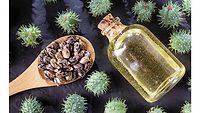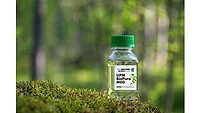BASF Broadens its Monomers Portfolio by Launching Bio-based 2-Octyl Acrylate

BASF's facility in Ludwigshafen, Germany. Courtesy of BASF.
BASF is expanding its growing portfolio of 14C bio-based monomers with a proprietary process for production of 2-octyl acrylate (2-OA). The new product underlines BASF’s strong commitment to innovation for a sustainable future with 73% 14C-tracable bio-based content according to ISO 16620. Besides the regular 14C bio-based 2-OA, BASF also launched the new product as 2-OA BMB ISCC Plus. Here, the remaining carbon content is ISCC PLUS certified, and by applying BASF’s biomass balance approach, this variant offers a further reduced product carbon footprint.
With industrial-scale production at its Verbund site in Ludwigshafen, Germany, BASF has a pioneering role when it comes to producing 2-OA in large volumes. This allows BASF to make the bio-based monomer globally available as a raw material. “We have broadened our product portfolio to support customers on their sustainability journey. With 2-OA, we are proud to have launched a novel acrylic monomer that helps customers to meet their sustainability goals," said Dr. Reiner Geier, senior vice president, Industrial Petrochemicals, Europe.
BASF’s 2-OA uses 2-Octanol as the respective bio-based feedstock. This bio-alcohol is based on castor oil, a sustainable non-edible feedstock which is reliably available throughout the year.
With its balanced solvency, 2-OA can easily be used as bio-based alternative to fossil-based monomers such as 2-Ethylhexyl Acrylate and n-Butyl Acrylate in adhesives formulations, or coatings applications.
The new product also offers performance benefits compared to fossil alternatives, showing improved scrub resistance in coatings, shear resistance in adhesives, and excellent weatherability. 2-OA is one of the few 14C bio-based monomers which can be used in both standard and high-performance applications. The high purity of BASF’s 2-OA provides a reliably high quality, with low VOCs, and enables customers to use the monomer in a broad application range.
To learn more, visit www.basf.com.
Looking for a reprint of this article?
From high-res PDFs to custom plaques, order your copy today!





